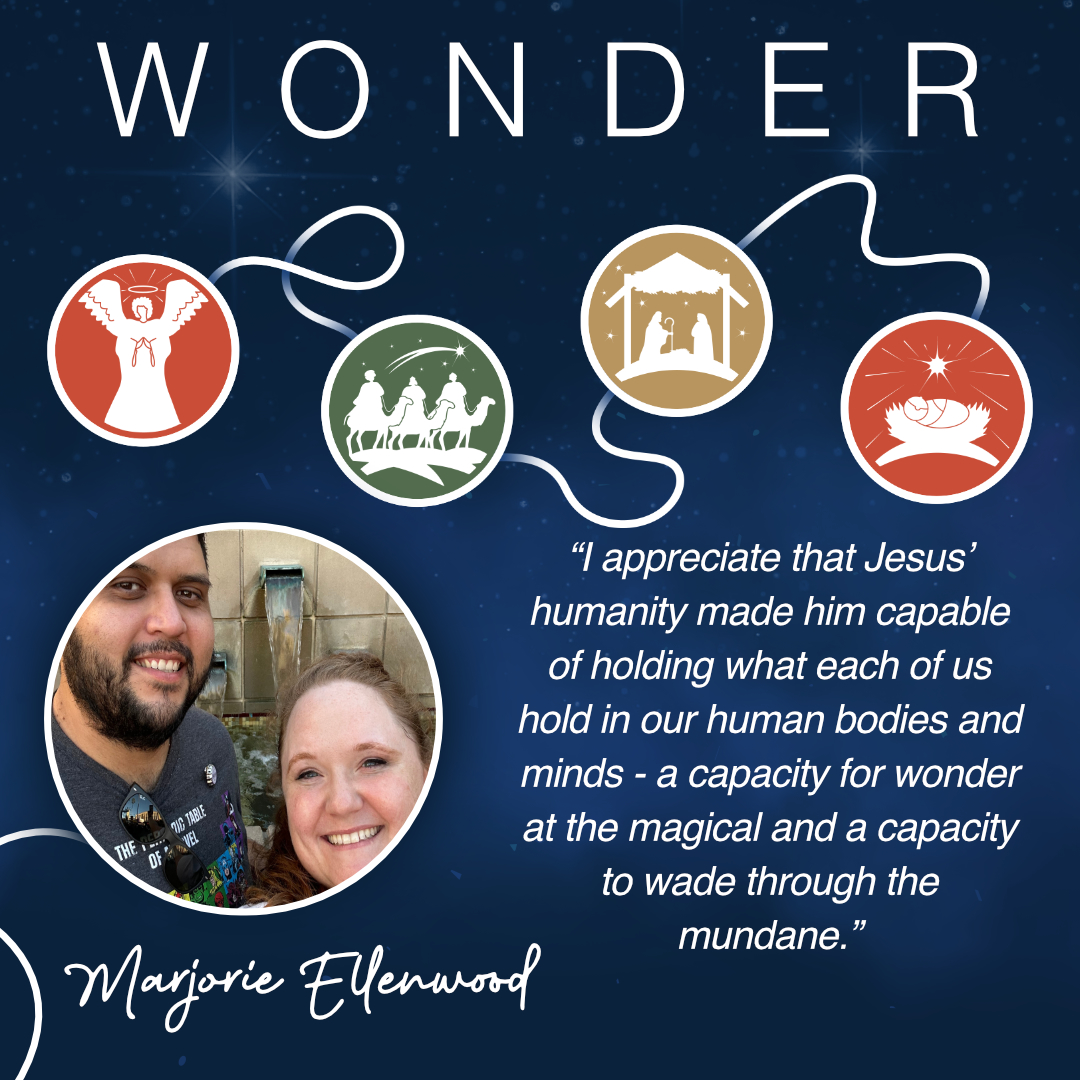Growing up in the foothills of the Cascade Mountains in Washington State, there was so much about the Christmas season that I loved: baking with my mom–cookies and fruit bread and gingerbread people to decorate. Listening to Christmas music on the cassette tapes my mom had made by copying other family members’ music–our favorites were Amy Grant and Garth Brooks, but we also loved the instrumental albums–carols on the piano, guitar, or harp. We made our own Christmas cards out of construction paper and a ridiculous amount of Elmer’s glue and glitter, spreading the cards out to dry on the table. The smell of the simmer pot with cinnamon sticks and whole cloves and orange peel on the wood stove. Driving with my dad in our little pickup a few miles up the road in our raincoats and rubber boots to tromp around in the mud, picking out the perfect tree, cutting it down, and carrying it back to the truck–we even got to ride in the back of the truck with the tree on the way home, the rain and cold wind swirling around our rosy faces, the smell of the douglas fir captivating our nostrils. When we got home, we decorated the tree and the rest of the house for Christmas with fresh evergreen boughs and homemade ornaments. It was always a slower time–shorter days and fewer responsibilities with the garden and yard.
But the best thing about the Christmas season were the few years when the snow came in time for the holiday. There is something absolutely wonder-filled about waking up to a quiet white glow outside, a hushed environment, the soft lacey flakes falling down and coating the deep browns and greens and grays of the wet woods. If the snow “stuck,” and was deep enough, we would sled in our backyard, or brave the steeper driveway at the neighbors’ place, making trails with our bootprints and snow angels in the flat areas. We built snowpeople with wobbly mouths and leaf scarves. Everything was new and an adventure. A picturesque wonderland waiting to be explored.
As I got older, the snow meant something else–it meant more stress and more work. When it snows at home, my dad is often out shoveling the driveway for hours. The roads are treacherous, if passable at all. You might not be able to go to work or school or church or anywhere, for that matter. Sometimes they lose electricity due to downed lines somewhere up the highway. And tempers can rise when everyone is cooped up indoors for too long. Just last year here in SoCal, when we had so much snow up in the mountains, some of my coworkers were stranded for over a week without access to groceries or electricity. Eventually, first responders were able to fly in supplies. But the snow’s damages had been intense, collapsing roofs and damaging roads.
I think one of the wonders that my few decades has taught me is the concept of seasons–seasons of darker times, seasons of light ones. Seasons of loss and pain and seasons of contentment, love, and laughter. Sometimes these seasons overlap, as they did for my husband and me three years ago–we married in a tiny outdoor ceremony on December 20, 2020, doing our utmost to protect ourselves and our loved ones from Covid. A week or so prior, we had lost my beloved grandfather to cancer. Missing him terribly, we chose to go ahead with the wedding anyways, even without any of my family able to attend. Despite the absence of most of our loved ones, it was a lovely, quiet, glowy day. We went home and resumed life–there was no honeymoon to be had with everything closed. Four days later on Christmas Eve, our brother-in-law (on Vlad’s side) was taken to the hospital with Covid; he died the morning of Christmas Day, leaving behind his wife and 11-month-old daughter. It was so sudden and so awful, and shortly afterwards, we came down with Covid as well. We spent our first days as newlyweds reeling with grief and very sick, terrified of losing each other only days into our marriage. We recovered from Covid, but the grief is still with us, though less heavy than before.
Three years later, Christmas is starting to feel more like a holiday and less like a season of loss. Our anniversary feels more like a celebration and less like a precursor for more grief. I have resumed some of the baking and card-sending. I still insist on a live Christmas tree for our living room. I have a simmer pot on our kitchen stove. I went home to Washington State for a few days and spent my time reveling in fresh air, evergreen trees, time with my parents, my grandmother, and my friends, and good things to eat and drink.
I appreciate that Jesus’ humanity made him capable of holding what each of us hold in our human bodies and minds–a capacity for wonder at the magical and a capacity to wade through the mundane. Humans are vast, to paraphrase Walt Whitman–we contain multitudes. We contain seasons. Jesus lived those seasons alongside us. For the first 30 years of his life, he was living just as we do, loving, learning, losing, laughing. He participated in traditions and festivals, in eating and drinking with loved ones, in grieving losses. Jesus was grateful for the beauty in the world around us, and he ached for other people’s pain. Whatever you may be going through this season, may you have a moment for wonder, and several moments to rest, moments with people you love, and moments to eat and drink things you enjoy. May you find value in our shared lived experience with the Son of Humanity.
Marjorie Ellenwood is a teacher who shares a little old house in Loma Linda with her husband, Vlad, their two cats, Brenin and Aravis, and more houseplants than they can count.

